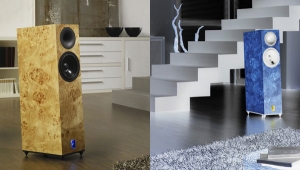| Columns Retired Columns & Blogs |
You can train your ear/brain mechanism to hear or not to hear certain things, but if you aren't born with a "high-end" pair you'll be wasting your time pretending they're ever going to turn to gold. Which brings me to one of my favorite gripes about audioporn magazines & their so called "golden eared" reviewers. When was the last time we read an independent audiologists test results of any reviewers hearing abilities? Additionally, and very importantly for the marketers of ultra expensive audio gear, humans have a significant ability to delude themselves about what they're actually hearing when they have a vested interest in doing so.


























